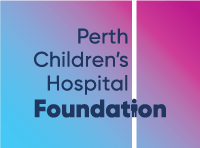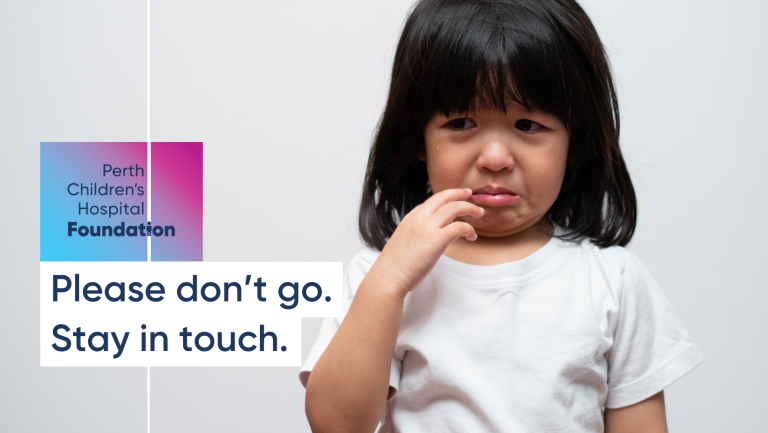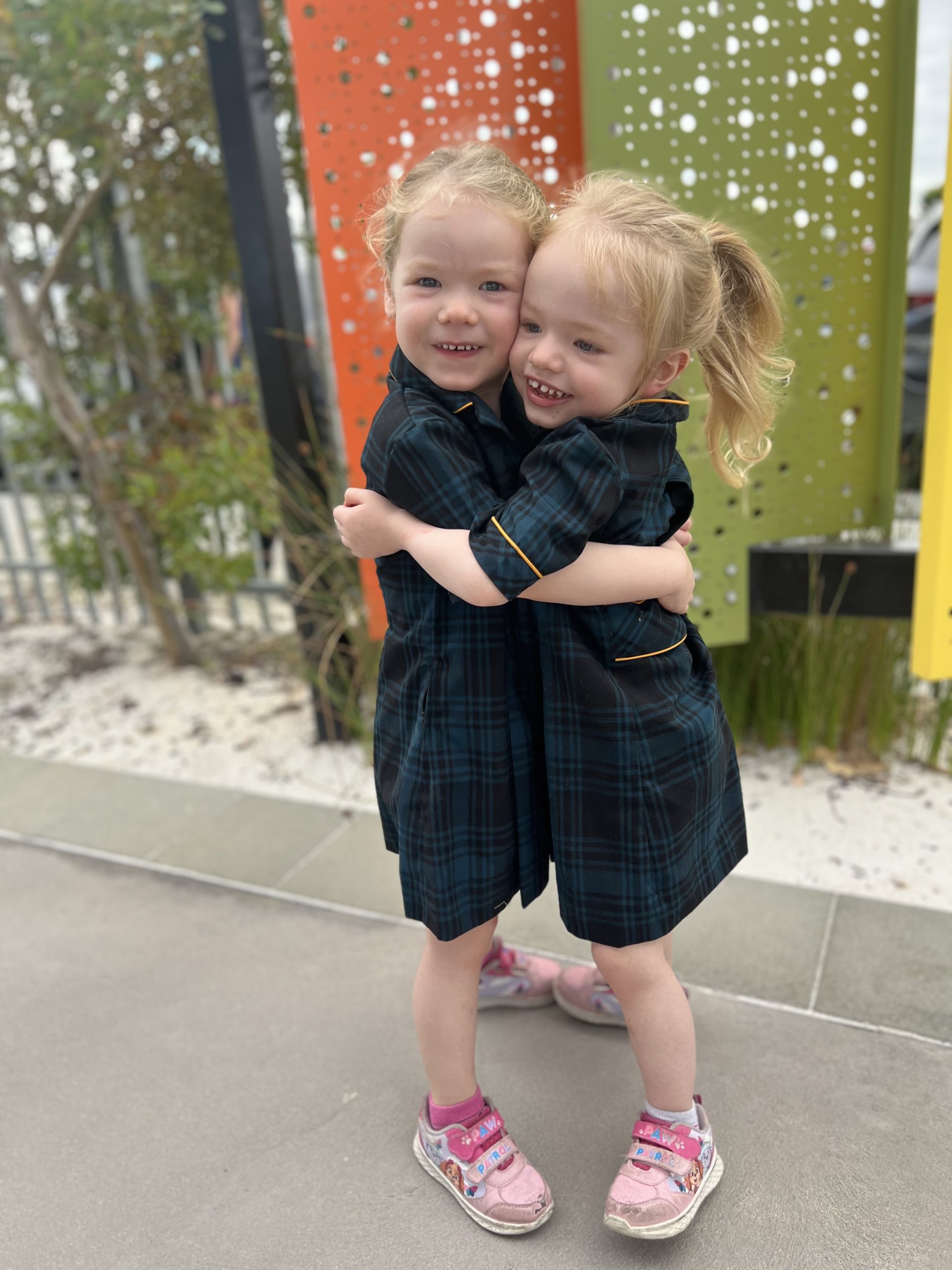
Early Moves: Seeing the signs sooner.
- Perth Children's Hospital Foundation
Early Moves: Seeing the signs sooner.
- Perth Children's Hospital Foundation
Groundbreaking WA-led research – part-funded by PCHF with support from Principal Partner Mineral Resources (MinRes) via Channel 7 Telethon Trust – is empowering families with early insights into their children's development, facilitating timely interventions during critical periods of brain development.
The Early Moves study, a collaboration between Perth Children’s Hospital, Curtin University, The Kids Research Institute Australia and other national partners, is exploring how a baby’s earliest movements could hold vital clues about their cognitive development.
A young baby’s movement patterns – referred to as ‘General Movements’ are over 90% accurate in detecting motor problems in babies such as cerebral palsy. Now, researchers are investigating whether these General Movements may also be able to predict cognitive or neurodevelopmental delays, such as Global Developmental Delay (GDD), or Autism Spectrum Disorder (ASD). This research could open new possibilities for earlier detection and support when it’s most beneficial.
Identifying developmental delays in a baby’s first year of life is critical – it means support and intervention can begin during the most important window for brain development.
Ayda's Story.
Early identification through Early Moves helped Ayda’s family detect and support their daughter’s developmental delays.
For WA mum Teagan, participating in the Early Moves study from birth helped her daughter Ayda access support when it mattered most.
Teagan enrolled her twin daughters, Ayda and Bella, in Early Moves shortly after birth, and later did the same for her son, Xavier. During Bella and Ayda’s first 14 weeks, she recorded their General Movements via a secure smartphone app, and their videos were assessed by specialist clinicians. Initially, both girls appeared to be tracking well and meeting their key developmental milestones.
It wasn’t until after Ayda’s first birthday that Teagan noticed subtle differences between her daughters’ development.
“I was always told not to compare twins or multiples, but it’s very hard when you’ve got one that’s progressing in the right way, and one that’s showing signs of withdrawal,” said Teagan.
Ayda, who had once been ahead in her speech, began to regress – becoming increasingly withdrawn and less communicative.
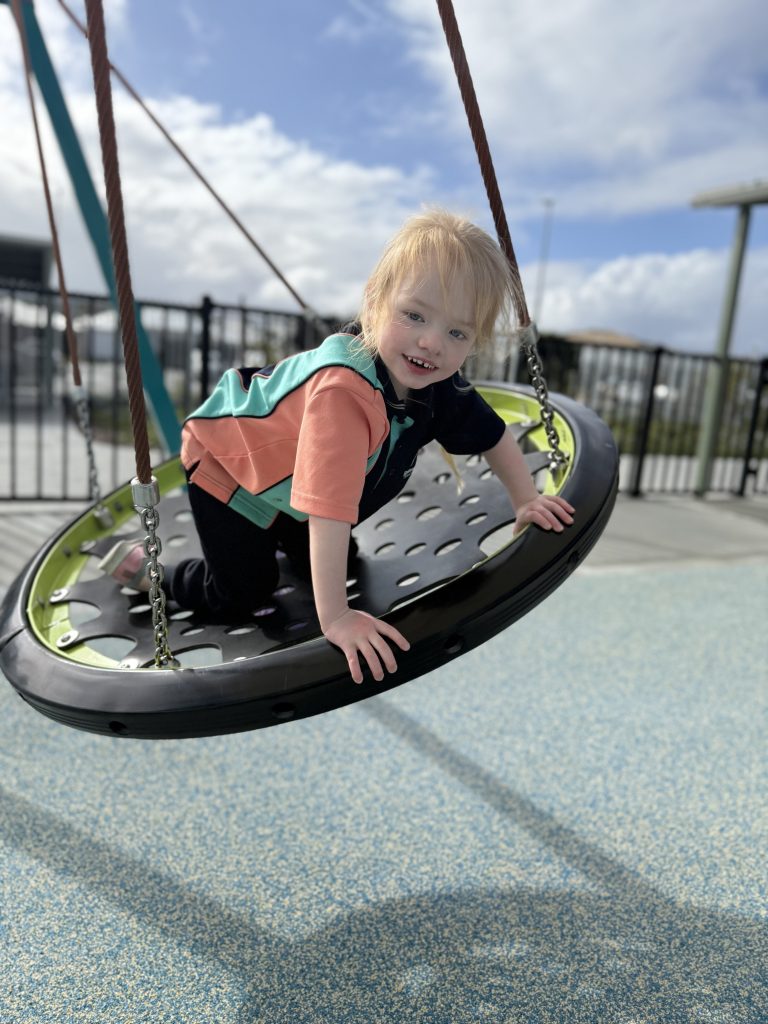
At two years of age, during her scheduled Early Moves developmental assessment, screening results indicated that Ayda was not meeting several expected developmental milestones, particularly in communication and social interaction. This early identification meant that Ayda could be referred for speech pathology and occupational therapy support while she awaited her paediatrician appointment – critical services that would otherwise have been delayed by lengthy waitlists.
“We were on a waitlist to see a paediatrician, but in the meantime, we were referred to a speech pathologist and OT. We knew Ayda had a communication delay, but it wasn’t until we saw the paediatrician that she was diagnosed with GDD.”
Teagan said Early Moves gave her the strength to advocate for Ayda. “Trust your intuition because no one knows your child like you do. If something feels off or doesn’t feel ‘normal’ then reach out for help.”
“While others may have meant well by trying to reassure me, instead it felt like no one was listening. It wasn’t until my experience with Early Moves that I found someone to listen to my concerns and take action, and I’m so glad I did.”
She said learning about GDD was confronting, but knowing early meant they could take action when it mattered most. “It was a bit of a shocking thing to understand at first, because I was told that if Ayda reaches the age of six and she’s still behind, she’ll be classed as intellectually disabled. And no parent wants to hear that.
“Having access to support early on is critical. If you have to wait to see a paediatrician, you only have a limited window to find out if your child has GDD. If you don’t have that early intervention, your child could already be six by the time they get diagnosed, and they’ll be classed as intellectually disabled. If they don’t get those chances, they’ll just stay behind.
Since receiving early intervention, Ayda has made huge strides in her development. “She is learning new things and maintaining them, and able to do things consistently. She’s able to associate things more and she will even have conversations now, where before it was purely babble,” said Teagan.
“Without the support and early detection from Early Moves, I don’t think Ayda would be talking. She would have reverted to a non-verbal state and would be living in a very closed off, small world.”
Jane Valentine, Co-Head, Kids Rehab Research WA at Perth Children’s Hospital said: “The first few years of life offer an unparalleled window of opportunity for brain development. By identifying potential concerns early, we can connect families with support sooner, and help children reach their full potential.” She added: “Early Moves is a powerful example of research delivering real-world impact. Thanks to the vision of our partners and donors, we are changing lives – giving children the best possible start and families the support they deserve.”
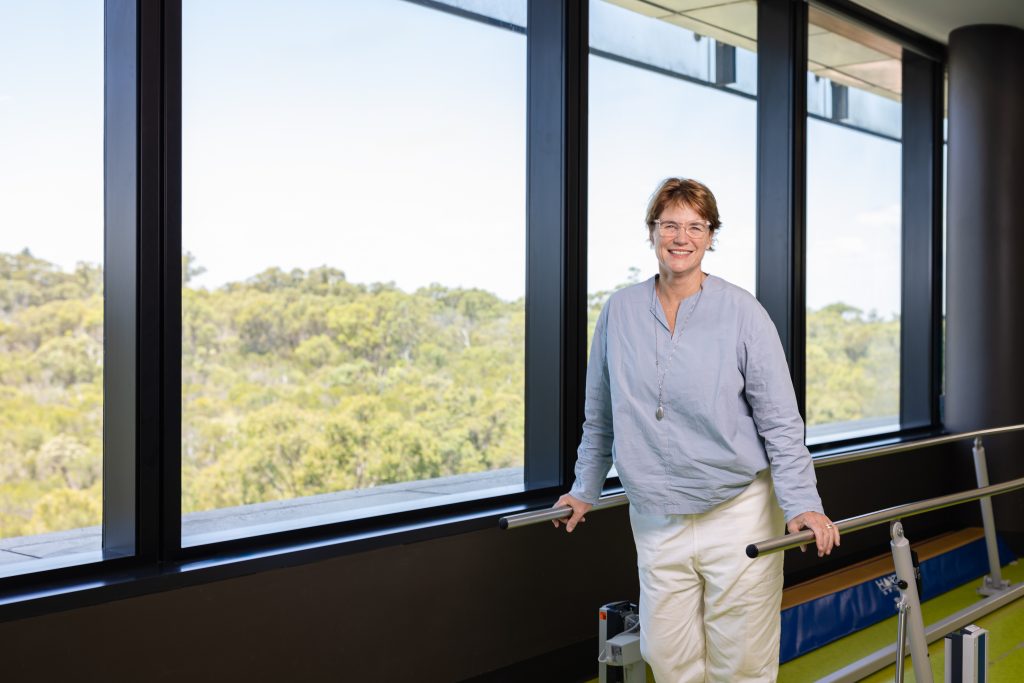
Jane Valentine, Co-Head, Kids Rehab Research WA at Perth Children’s Hospital.
Acknowledgements: Early Moves is part-funded by PCHF with support from Principal Partner Mineral Resources (MinRes) via Channel 7 Telethon Trust, in partnership with Curtin University and The Kids Research Institute Australia. The study also receives funding via the National Health and Medical Research Council, Curtin University, West Australian Child Research Fund, and the Cerebral Palsy Alliance.

